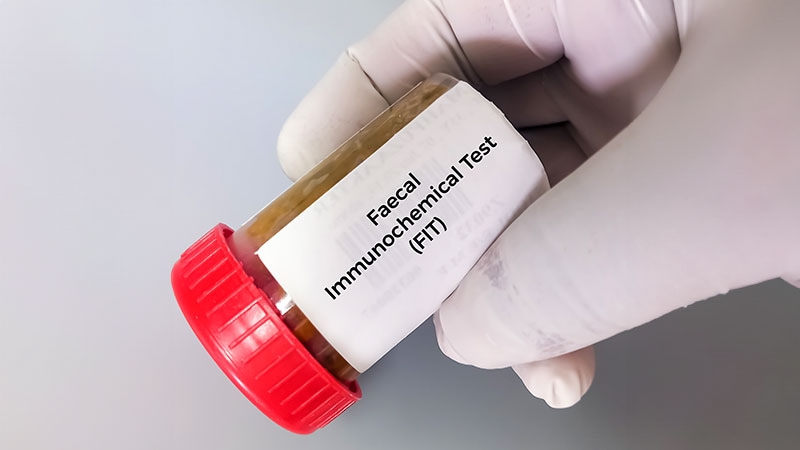통찰 - Medical Research - # Comparative Performance of Stool-Based Colorectal Cancer Screening Tests
Multitarget Stool DNA Test Outperforms Other Stool-Based Colorectal Cancer Screening Tests in Detecting Advanced Serrated Lesions
핵심 개념
Multitarget stool DNA (mt-sDNA) test has a significantly higher detection rate for advanced serrated lesions compared to fecal immunochemical test (FIT) and fecal occult blood test (FOBT) in colorectal cancer screening.
초록
This study compared the real-world performance of three stool-based tests - multitarget stool DNA (mt-sDNA), fecal immunochemical test (FIT), and fecal occult blood test (FOBT) - for colorectal cancer (CRC) screening in average-risk individuals.
The key findings are:
-
There was no significant difference between the three stool-based tests in the detection of advanced neoplasia overall.
-
However, the mt-sDNA test showed a significantly higher detection rate for advanced serrated lesions compared to FIT and FOBT (11.3% vs 1.8% and 0%, respectively).
-
A sensitivity analysis evaluating outcomes specifically for advanced serrated lesions with hyperplastic polyps sized 5-9 mm also found that mt-sDNA had a higher detection rate than FIT and FOBT (17.7% vs 4.4% and 0%, respectively).
-
The positive predictive value for advanced neoplasia was the highest for the mt-sDNA test (30.7%), followed by FIT (22.8%) and FOBT (18.8%).
The authors concluded that while there was no significant difference between the stool-based tests in the detection of advanced neoplasia overall, the mt-sDNA test outperformed FIT and FOBT in detecting advanced serrated lesions, which are important precursors to colorectal cancer.
Stool-Based Tests Equal, mt-sDNA Finds More Serrated Lesions
통계
The study included 302 individuals (mean age, 63 years; 59.27% women) who met the "average risk" criteria and had documented follow-up colonoscopy within 12 months of a positive stool-based test.
인용구
"Our study provided real-world evidence in a large, opportunistic screening program and showed that while there was no significant difference between SBTs [stool-based tests] in the detection of advanced neoplasia, more advanced serrated lesions were detected after positive mt-sDNA compared with other SBTs."
더 깊은 질문
What are the potential reasons for the higher detection rate of advanced serrated lesions by the mt-sDNA test compared to FIT and FOBT?
The higher detection rate of advanced serrated lesions by the multitarget stool DNA (mt-sDNA) test compared to fecal immunochemical test (FIT) and fecal occult blood test (FOBT) can be attributed to several factors. Firstly, the mt-sDNA test is designed to detect specific DNA markers associated with colorectal cancer and advanced neoplasia, including serrated lesions. This molecular approach allows for a more sensitive identification of lesions that may not produce significant amounts of blood, which is what FIT and FOBT primarily detect.
Secondly, the mt-sDNA test can identify a broader range of genetic alterations and methylation patterns that are characteristic of serrated lesions, which may be missed by the more traditional tests that focus on hemoglobin detection. This capability enhances the test's specificity for advanced serrated lesions, leading to a higher detection rate.
Additionally, the study's findings suggest that the mt-sDNA test may be more effective in identifying lesions that are smaller or less likely to bleed, which are often the types of serrated lesions that can progress to colorectal cancer if left undetected. Overall, the advanced molecular technology employed by the mt-sDNA test provides a significant advantage in the early detection of these potentially precancerous lesions.
How can the findings of this study be used to inform and improve colorectal cancer screening guidelines and practices?
The findings of this study can significantly inform and improve colorectal cancer screening guidelines and practices by highlighting the importance of incorporating the mt-sDNA test into routine screening protocols for average-risk individuals. Given that the mt-sDNA test demonstrated a superior ability to detect advanced serrated lesions, which are known precursors to colorectal cancer, its inclusion could lead to earlier intervention and improved patient outcomes.
Healthcare providers and policymakers can use this evidence to advocate for the adoption of mt-sDNA testing as a primary screening tool, particularly for populations at average risk. Additionally, the study underscores the need for ongoing education about the different stool-based tests available, ensuring that both patients and providers understand the strengths and limitations of each test.
Furthermore, the findings can prompt further research into the cost-effectiveness of mt-sDNA testing compared to traditional methods, potentially leading to updated guidelines that reflect the latest evidence in colorectal cancer screening. By integrating these insights into clinical practice, healthcare systems can enhance early detection efforts and ultimately reduce the incidence and mortality associated with colorectal cancer.
What are the potential implications of the increased detection of advanced serrated lesions on the overall management and prevention of colorectal cancer?
The increased detection of advanced serrated lesions has several important implications for the overall management and prevention of colorectal cancer. Firstly, identifying these lesions at an earlier stage allows for timely intervention, which can include surveillance colonoscopy, polypectomy, or other therapeutic measures. This proactive approach can significantly reduce the risk of progression to colorectal cancer, thereby improving patient outcomes.
Secondly, the ability to detect advanced serrated lesions more effectively may lead to a shift in clinical practice towards more personalized screening strategies. For instance, individuals with a history of advanced serrated lesions may require more frequent surveillance compared to those with a clean colonoscopy, allowing for tailored management plans that address individual risk factors.
Moreover, the increased detection rates can enhance public health initiatives aimed at colorectal cancer prevention. By raising awareness about the significance of serrated lesions and the effectiveness of the mt-sDNA test, healthcare providers can encourage more individuals to participate in screening programs, ultimately leading to higher screening rates and earlier detection of colorectal cancer.
Lastly, the findings may stimulate further research into the biological behavior of serrated lesions, contributing to a better understanding of their role in colorectal cancer development. This knowledge can inform future prevention strategies and potentially lead to the development of targeted therapies for patients with advanced serrated lesions, further advancing the field of colorectal cancer management.

